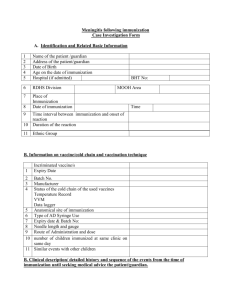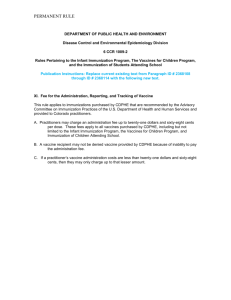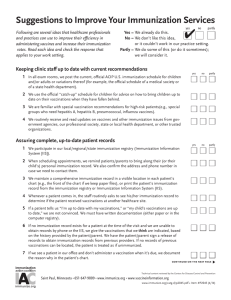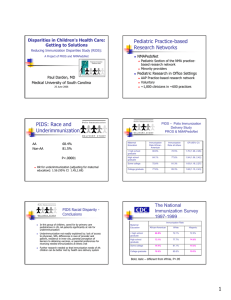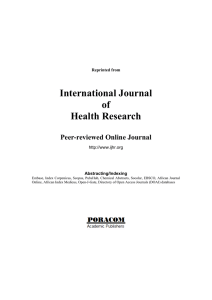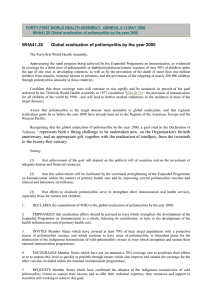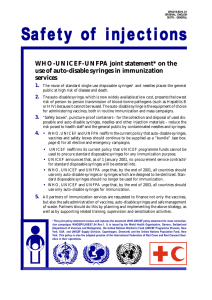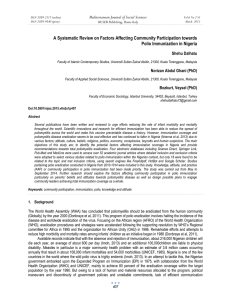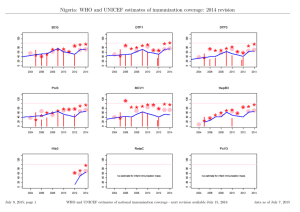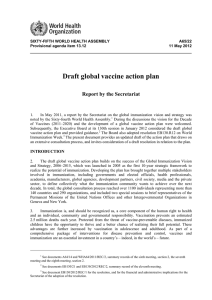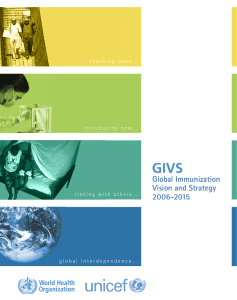Leadership Principles and Practices for Health System Transformation Johns Hopkins University
advertisement
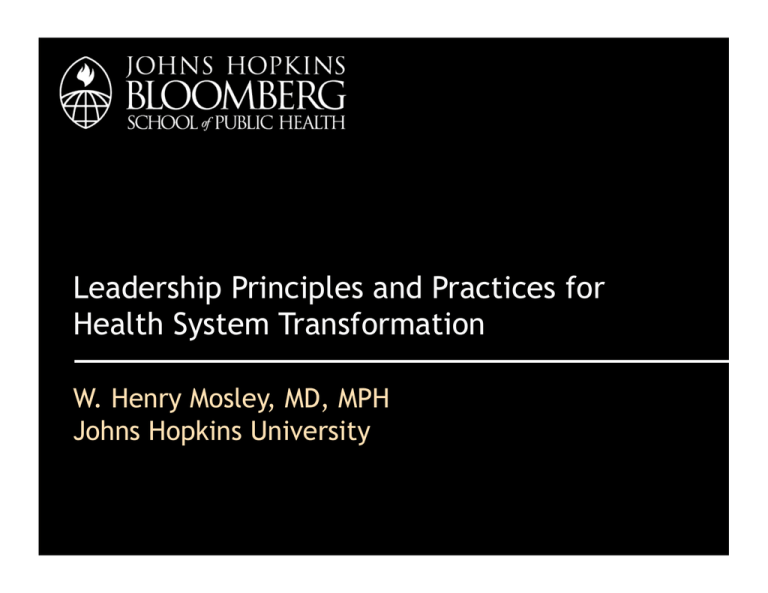
Leadership Principles and Practices for Health System Transformation W. Henry Mosley, MD, MPH Johns Hopkins University Dr. Schoenrich 2 W. Henry Mosley, MD, MPH 3 To change others, we may have to change ourselves first 4 Section A Where Do Leaders Operate? Where Do Leaders Operate? 6 What Is Difficult? Impossible? Beyond Imagination? 7 The Present Health System Is Perfectly Designed to Produce the Present Results ! If we want the same results, let us keep the present system 8 If We Want New Results, We Need to Redesign Our Health Production System 9 Leadership and Management Should Complement Each Other 10 Core Leadership Disciplines ! Personal Mastery ! Mental Models ! Systems Thinking ! Shared Vision ! Team Learning Source: Senge, P. (2006). The Fifth Discipline. 11 The STAR Framework: Strategic Thinking, Action, and Reflection Strategic Thinking, Action, and Reflection 12 Personal Mastery: STAR Question ! How can we live more creative and purposeful lives? 13 Personal Mastery, Examples ! Nelson Mandela ! Mother Theresa ! Martin Luther King Jr. ! CNN “Heroes” ! And many more … 14 Mental Models: STAR Question ! How can we continuously open our minds to new ideas? 15 Our Best Thinking Got Us Here ! The problems that we face cannot be solved by the same level of thinking that created them. - Albert Einstein 16 Leadership the Old Way: The “Blueprint” Strategy 17 Mental Models Sustaining the Blueprint Strategy ! ! ! ! ! ! Professionals know it all Evidence-based research has the answers Predesigned projects are mandatory Ministries of Health are the health system Short-term technical assistance is enough Evaluation requires outside expertise 18 The “Blueprint” Strategy: A Fundamental Flaw 19 Nigeria – Immunization Case Study Source:http://apps.who.int/immunization_monitoring/data/data_AFR/en/index.html 20 Nigeria – Immunization Case Study Source:http://apps.who.int/immunization_monitoring/data/data_AFR/en/index.html 21 Source: Nigerian Demographic and Health Survey (DHS), 2008. State Eki7 Osun Imo Anambra Abuja Lagos Cross Rivers Edo Oyo Ebonyi Abia Delta Plateau Kwara Kogi Ondo Rivers Akwa Ibom Enugu Ogun Benue Kaduna Adamawa Nasarawa Gombe Bayelsa Niger Taraba Yobe Zamfara 90 Kano Kebbi Borno Sokoto Kas7na Bauchi Jigawa Coverage (%) Nigeria—Immunization Coverage by State DPT3 coverage by states, DHS 2008 100 Why is this happening? 80 70 60 50 40 30 20 10 0 22 Reasons for No- or Under-immunization: Definition of Categories* Immunization systems Family characteristics ! Access and vaccine service availability ! Education level (of mom and dad) ! Use of all opportunities ! Family size ! Cost and service quality ! Income, occupation ! Health worker knowledge ! Ethnicity/language group Communication/information Parental attitude/knowledge ! Media messages regarding vaccinations ! Perceived benefit of vaccines ! Perceived disease threat ! Community involvement in EPI ! Group pressure for or against vaccinations ! Trust in health service provider *From New Generation Vaccines, 3rd edition 23 23 Reasons for Being Unvaccinated % based on total reasons abstracted from 12 articles on unvaccinated children according to definitions in New Generation Vaccines, 3rd ed. 24 24 To Change the Way We Act, We Must First Change the Way We Think ! A first step is to change our “mental model” of what constitutes the “health system” of a country 25


